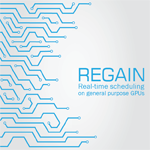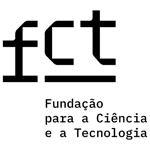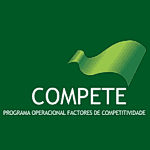 REGAIN
REGAIN
Real-time scheduling on general purpose graphics processor units
| FCOMP-01-0124-FEDER-020447 PTDC/EIA-CCO/118080/2010 40 months (Apr 2012 to Jul 2015) | |
| Summary: | Among all processors sold today, 98% are used in embedded computer systems; therefore catering to this segment is of utmost importance. Moreover, there is a persistent trend in computing that techniques originally developed at the high-end (pipelining, cache-memories, instruction-level parallelism) later propagate to embedded computer systems. Graphics processors are the next technology to do this transition. Graphics processors were originally used only for graphics but have evolved significantly during the recent decade as witnessed by the following. First, the performance of graphics processor units has followed the exponential advances in semiconductor density (Moore´s law) whereas the performance of normal processors (CPUs) has not. Second, graphics processor units are increasingly integrated with a normal processor on a single chip for use both in high and low-end computer systems. Intel Sandybridge, AMD Fusion and NVIDIA Tegra 2 exemplify this. Third, today’s graphics processors can multitask and offer fast context switching (25 microseconds) between different applications. Fourth, graphics processors are today able to perform general-purpose computations, using macros in C-programs; this allows normal software developers to use graphics processors for data-parallel programs. Therefore, this type of processor can be viewed as a multicore processor; it has come to be called General Purpose Graphics Processor Unit (GPGPU) or simply GPU (the phenomenon is called GPU computing). Because of its attractive performance, the GPGPU will become the workhorse in virtually all computer systems. Even so, embedded systems pose specific challenges: Embedded computer systems interact with their physical world. For example, a computer which autonomously drives a car (GPUs are intended for this) must not only compute the correct actuation signals (for example steering) but must also do so at the right time in order to drive safely. The real-time systems research community has created a comprehensive toolkit involving (i) algorithms for run-time scheduling of tasks with deadlines and (ii) proof methods (called schedulability tests) for proving before run-time, using a given scheduling algorithm at run-time and given a model of the workload, that all deadlines of tasks are met at run-time. This toolkit (rate-monotonic and earliest-deadline-first scheduling and analysis) is currently well-established for uniprocessors. Scientific work is currently underway for transferring these results to multiprocessors; multicores in particular. Yet, the scientific community in the area of real-time systems offers no scheduling theory for GPGPUs and creating such a theory is non-trivial. Considering the importance of GPGPUs and their expected importance in embedded systems in the future and considering the current lack of scheduling theory for GPGPUs, there is a strong need to create a scheduling theory for GPGPUs. Therefore, this project will create a real-time scheduling theory for GPGPUs. This theory will offer (i) a model suited for describing real-time scheduling on GPGPUs, (ii) algorithms for run-time scheduling of tasks using GPGPUs and (iii) algorithms for proving, before run-time, that tasks using GPGPUs meet their deadlines. This project will also test the theory on commercially available GPGPUs. |
| Funding: | Global: 139KEUR, CISTER: 139KEUR |
| Sponsors: |   |
| Partners: | |
| Contact Person at CISTER: | Konstantinos Bletsas |
. . . . . . . . . . . . . . . . . . . . . . . . . . . . . . . . . . . . . . . . . . . . . . . . . . . . . . . . . . . . . . . . . . . . . . . . . . . . . . . . . . . . . . . . . . . . . . . . . . . . . . . . . . . . . . . . . . . . . . . . . . . . . . . . . . . . . . . . . . . . . . . . . . . . . . . . . . . . . . . . . . . . . . . . . . . . . . . . . . . . . . . . . . . . . . . . . . . . . . . . . . . . . . . . . . . . . . . . . . . . . . . . . . . . . . . . . . . . . . . . . . . . . . . . . . . . . . . . . . . . . . . . . . . . . . . . . . . . . . . . . . . . . . . . . . . . . . . . . . . .
Journal Papers
An optimal boundary fair scheduling CISTER-TR-140503
Geoffrey Nelissen, Hang Su, Yifeng Guo, Dakai Zhu, Vincent Nélis, Joel GoossensReal-Time Systems, Springer US. 1, Jul, 2014, Volume 50, Issue 4, pp 456-508. U.S.A..
Geoffrey Nelissen, Hang Su, Yifeng Guo, Dakai Zhu, Vincent Nélis, Joel GoossensReal-Time Systems, Springer US. 1, Jul, 2014, Volume 50, Issue 4, pp 456-508. U.S.A..
Compositional Multiprocessor Scheduling: the GMPR interface CISTER-TR-140101
Artem Burmyakov, Enrico Bini, Eduardo TovarReal-Time Systems, Springer US. May 2014, Volume 50, Issue 3, pp 342-376. U.S.A..
Artem Burmyakov, Enrico Bini, Eduardo TovarReal-Time Systems, Springer US. May 2014, Volume 50, Issue 3, pp 342-376. U.S.A..
Real-Time Scheduling with Resource Sharing on Heterogeneous Multiprocessors CISTER-TR-140102
Björn Andersson, Gurulingesh RaraviReal-Time Systems, Springer US. Mar 2014, Volume 50, Issue 2, pp 270-314. U.S.A..
Björn Andersson, Gurulingesh RaraviReal-Time Systems, Springer US. Mar 2014, Volume 50, Issue 2, pp 270-314. U.S.A..
Task assignment algorithms for two-type heterogeneous multiprocessors CISTER-TR-131002
Gurulingesh Raravi, Björn Andersson, Vincent Nélis, Konstantinos BletsasReal-Time Systems (RTS), Springer. Jan 2014, Volume 50, Issue 1, pp 87-141.Outstanding Paper Award, ECRTS 2012
Gurulingesh Raravi, Björn Andersson, Vincent Nélis, Konstantinos BletsasReal-Time Systems (RTS), Springer. Jan 2014, Volume 50, Issue 1, pp 87-141.Outstanding Paper Award, ECRTS 2012
Conference or Workshop Papers/Talks
Response-Time Analysis of Synchronous Parallel Tasks in Multiprocessor Systems CISTER-TR-141001
Cláudio Maia, Marko Bertogna, Luis Miguel Nogueira, Luis Miguel Pinho22nd International Conference on Real-Time Networks and Systems (RTNS 2014). 8 to 10, Oct, 2014. Versailles, France.
Cláudio Maia, Marko Bertogna, Luis Miguel Nogueira, Luis Miguel Pinho22nd International Conference on Real-Time Networks and Systems (RTNS 2014). 8 to 10, Oct, 2014. Versailles, France.
How to deal with control-flow information in parallel real-time applications? CISTER-TR-141201
José Fonseca, Vincent Nélis, Gurulingesh Raravi, Luis Miguel Pinho5th Real-Time Scheduling Open Problems Seminar (RTSOPS 2014). 8, Jul, 2014. Madrid, Spain.
José Fonseca, Vincent Nélis, Gurulingesh Raravi, Luis Miguel Pinho5th Real-Time Scheduling Open Problems Seminar (RTSOPS 2014). 8, Jul, 2014. Madrid, Spain.
Conference or Workshop Posters/Demos
On Program Restructuring for Cluster-based Highly Parallel Embedded Architectures CISTER-TR-140908
Luis Miguel Pinho, Ismael Marín Carrión, Luis Lino FerreiraPoster presented in INFORUM - Simpósio de Informática (INFORUM 2014). 4 to 5, Sep, 2014. Porto, Portugal.
Luis Miguel Pinho, Ismael Marín Carrión, Luis Lino FerreiraPoster presented in INFORUM - Simpósio de Informática (INFORUM 2014). 4 to 5, Sep, 2014. Porto, Portugal.











 PDF
PDF Zip Archive
Zip Archive